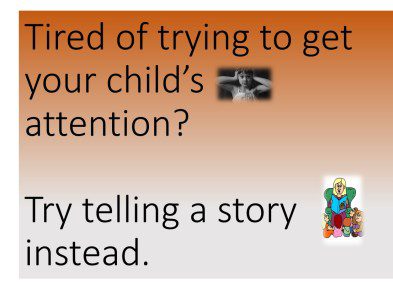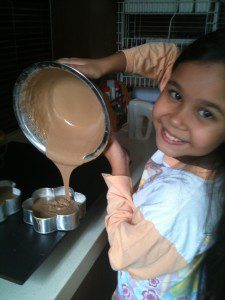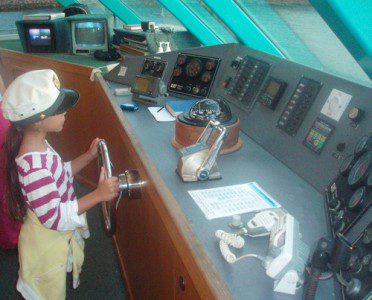
Do you find yourself having difficulty getting your kids’ attention?
Are you so worried about your children’s progress, you cannot create any more room or space to engage in discussion?
How about telling a story to your children instead?
A very important element in teaching is to be able to tell a story to our children. So I have included this in my parenting. Kids love to listen to stories. If you are good story teller, kids would gather round you and enjoy your every gesture and facial expressions.
I find it easier to tell stories from my personal experiences to teenagers. There are two types of stories you can tell. They are either imaginative or stories based on your true social life experiences. Do not use stories which you have not heard it yourself from your parents, read about in books or experienced before in life. Kids are sensitive. They can pick out irrelevant information or ‘lies’ .
The key is to end the story with a joke or inject laughter throughout the process. You need this skill in your parenting or teaching. Without story telling skills, you have no other method to get your children’s attention except with constant nagging and advice. Nobody likes that. Here are some examples where stories can come from:
1. Grandparents
Stories about your experience with grandparents are the easiest to begin with. Start asking questions to the grandma and grandpa in front of your children. “Mum / Dad. how do you cook in those days?” You do not have to be the one to tell the stories here. But you can be assured there will be a lot of good advice that would come with them telling stories for you.
2. Spouse
Whilst you are still in a marriage, you are always learning about your spouse’s childhoood experiences. Share these experiences during meal times. Stories of adventures to places your kids could only imagine or read about in books are lovely to share.
3. Read
Of course, this is no brainer. Bed time stories. Have to be an old time favourite activity for kids and parents.
4. Look at photo albums
Photos tell lots of stories. Whenever you have visitors coming over, bring out a family album and share your experiences from when those pictures were taken. Invite your children to join in and listen.
5. Memorabilia /gifts / souvenirs
These items are collections from your travels , gifts from friends and presents for your birthdays. Ask you child to retell the stories of the gift you bought for them. How did they feel when they received these gifts? How about the pair of earrings which they choose for you for mother’s day? Or the pair of new sports shoes from an uncle or aunty?
6. Pictures on the wall.
Why do you hang pictures on the wall? For purpose of admiring the art or simply decorate an otherwise empty wall? Any picture tell a story. Where and when you got the picture framed. If you had bought the painting, describe where you got it from and why you bought. These are stories which are real and will definitely connect .
7. The house you live in.
Why did you buy the house? Who painted the walls? How much time did you take to get the kids’ room ready? Where did you go to shop for the furniture in the room.
8. Newspaper cutting
Here is a huge piece of history you can be proud of. When an article about your family appears on the newspaper.
Everything you do for your kids is done out of love. Pick and choose the items and people you know will add flavour and value to what you intend to do, that is to reach out to your children and have a little bit of extra attention from them.
The key is to end the story with a joke or inject laughter throughout the process. You need this skill in your parenting or teaching. Childhood memories totally depend on good stories, so let us learn to tell it well.







